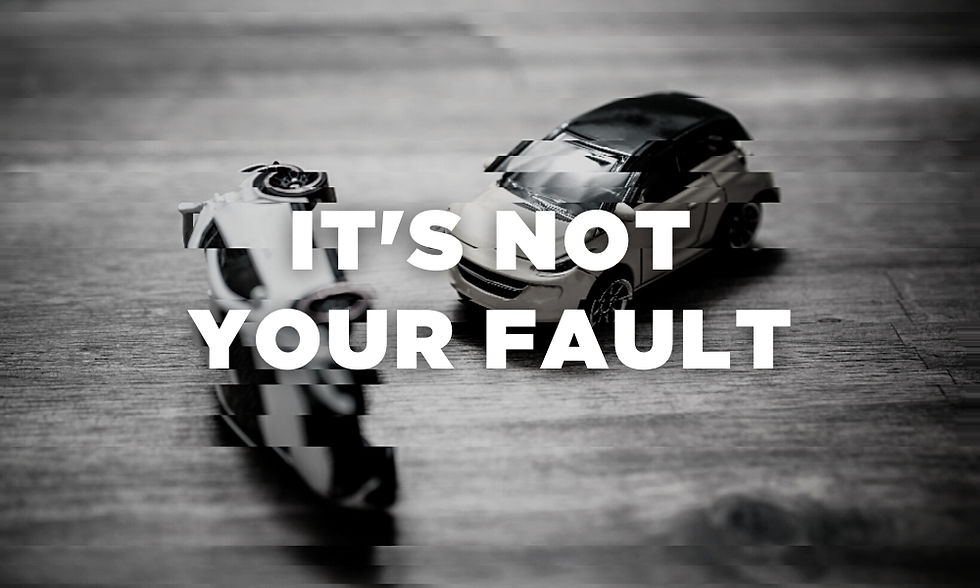Is it Illegal to Drive with Interior Lights on in Ohio?
- Brad Keating

- Aug 5, 2020
- 3 min read
Updated: Nov 3, 2020
The interior lights in cars can become a safety hazard, especially when driving at night. A lot of people assume that having the lights in the car at night is illegal, but it depends on the state. Overall, whether this action is legal or not sits in a gray area of traffic law.
When drivers are using the interior lights while driving, they are still subject to getting a ticket. Though the law does not directly address that having the light on in the vehicle is illegal, it affects other drivers. Therefore, patrolmen can hand out tickets for being a safety issue.
Whether or not drivers get pulled over for having illumination in the car depends on the police officer. They may let you go, ensuring that you're not swerving or dangerously maneuvering. However, if driving abilities seem to be impaired, then they have even more reason to pull people over and fine them for having the interior car light on.
Whether it is prohibited or not by Ohio injury law, driving on the road with a light on can be very dangerous. Vision can be impaired because of the glare, and there is a higher possibility of a collision. Therefore, it is always best to avoid turning on the light.

Why Is it Illegal to Drive with interior Lights On?
The primary purpose of using an interior dome light is to illuminate the inside of the vehicle when entering and exiting. These lights have no reason to be on while driving.
Some states prohibit the illumination of any vehicle light while driving, especially at night. The glare that comes from the light reflects on the interior of the car, preventing clear visibility of the road. This serves as a danger to the driver as well as other drivers, increasing the potential for a collision. To try to keep all drivers safe, some states ban the use of interior lights while driving a car.
Is it Illegal to Drive with Interior Lights on in New York?
New York does not prohibit turning on the inside lights of the car. However, as with most other states, the police may pull drivers over for being a threat to other drivers' safety since the light glare makes it much harder to see the road.
Is it Illegal to Have Colored Interior Lights?
There are no laws that prohibit the use of colored lights in cars. However, traffic laws do state that lights cannot flash, rotate, or oscillate. The bulbs on the back of the car that illuminate the license plate have to be white, and the underglow has to be less than 300 candlepower.
To include colored bulbs in a car, then the one color combination to avoid is blue and red. Some drivers may see these and think you’re a police officer. To prevent any mix-ups, do not include these bulb colors when decorating.
Is it Illegal to Drive with Interior Lights on In Victoria?
As with other cities and states, having the inside light on when people drive is not prohibited, but police officers have the final say in whether or not they get fined. One of the primary reasons for the level of authority is because they have been trained in traffic safety. If they see that they are not following the proper guidelines and safety protocols, then drivers could be pulled over. Overall, it goes back to whether or not the interacting officer is lenient and whether the driver is following the proper rules for driver safety.
Though it is not banned in most states, it is best to keep the inside car light turned off.

Whether you want to know how long points stay on your license in Ohio, or what the legal limit for window tint is in Ohio, The Keating Firm LTD. can help you with any legal information you need.
Disclaimer: The details included in this blog is offered for educational purposes only, and should not be taken as lawful guidance in any way. No recipients of material from this blog, clients or otherwise, should or should not act on the basis of any material consisted in the blog without seeking the appropriate legal or other professional guidance on the particular facts and situations at issue from an attorney accredited in the recipient's state.




If you are often tired after hours of overloaded work, relax your mind by playing geometry vibes. This game will help you have more energy to continue working.